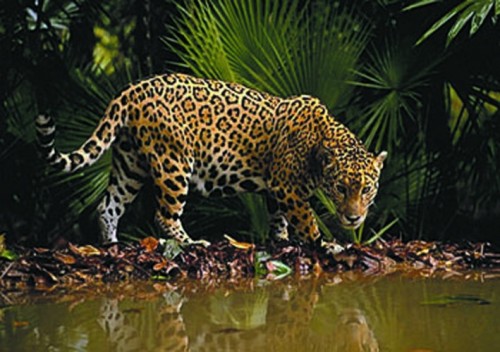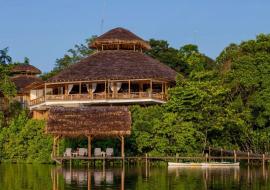Ecotourism Now Endangers Wildlife as Visitors Scramble for Remote Experiences

It’s hard to deny that humanity has played a pretty big role in changing nature for the worse. That’s why many environmental groups have advocated showcasing the world’s natural grandeur, reminding everyday citizens what is worth protecting. The bad news, however, is that this so-called ‘eco-tourism’ may cause its own problems for Mother Earth.
That’s at least according to a report recently publisher in the journal Trends in Ecology & Evolution, which details how most interaction between animals and nature-friendly tourists may actually tip the delicate balance between predator and prey.
“Recent data showed that protected areas around the globe receive 8 billion visitors per year; that’s like each human on Earth visited a protected area once a year, and then some,” Daniel Blumstein, a researcher with the University of California, explained in a recent statement. “This massive amount of nature-based and eco-tourism can be added to the long list of drivers of human-induced rapid environmental change.”
It is a booming industry. “Shark ecotourism” alone in the Caribbean and Australia waters brings in $314 million annually worldwide, according to industry figures. That can come at a price, though. Blumstein new report in Trends in Ecology & Evolution, suggests that all this coziness in the wild can upset a natural balance.
Animal behavior itself is changing, he says.
“When animals interact in ‘benign’ ways with humans, they may let down their guard,” he says, concluding that the newly friendly beasts could be killed off in an encounter with real predators in nature.
Those who support ecotourism are very clear about their mission, however. The International Ecotourism Society defines ecotourism as “responsible travel to natural areas that conserves the environment, sustains the well-being of the local people, and involves interpretation and education.”
The organization encourages both tourists and tour providers to “minimize physical, social, behavioral, and psychological impacts,” in the pristine or far flung spots they visit.
Mr. Blumstein compares ecotourism to domestication or urbanization, citing the phenomenon of wild animals that become increasingly tame and docile in city environments.
“If individuals selectively habituate to humans – particularly tourists – and if invasive tourism practices enhance this habituation, we might be selecting for or creating traits or syndromes that have unintended consequences, such as increased predation risk. Even a small human-induced perturbation could affect the behavior or population biology of a species and influence the species’ function in its community.” Mr. Blumstein writes in his research.
Source: The Market Business














